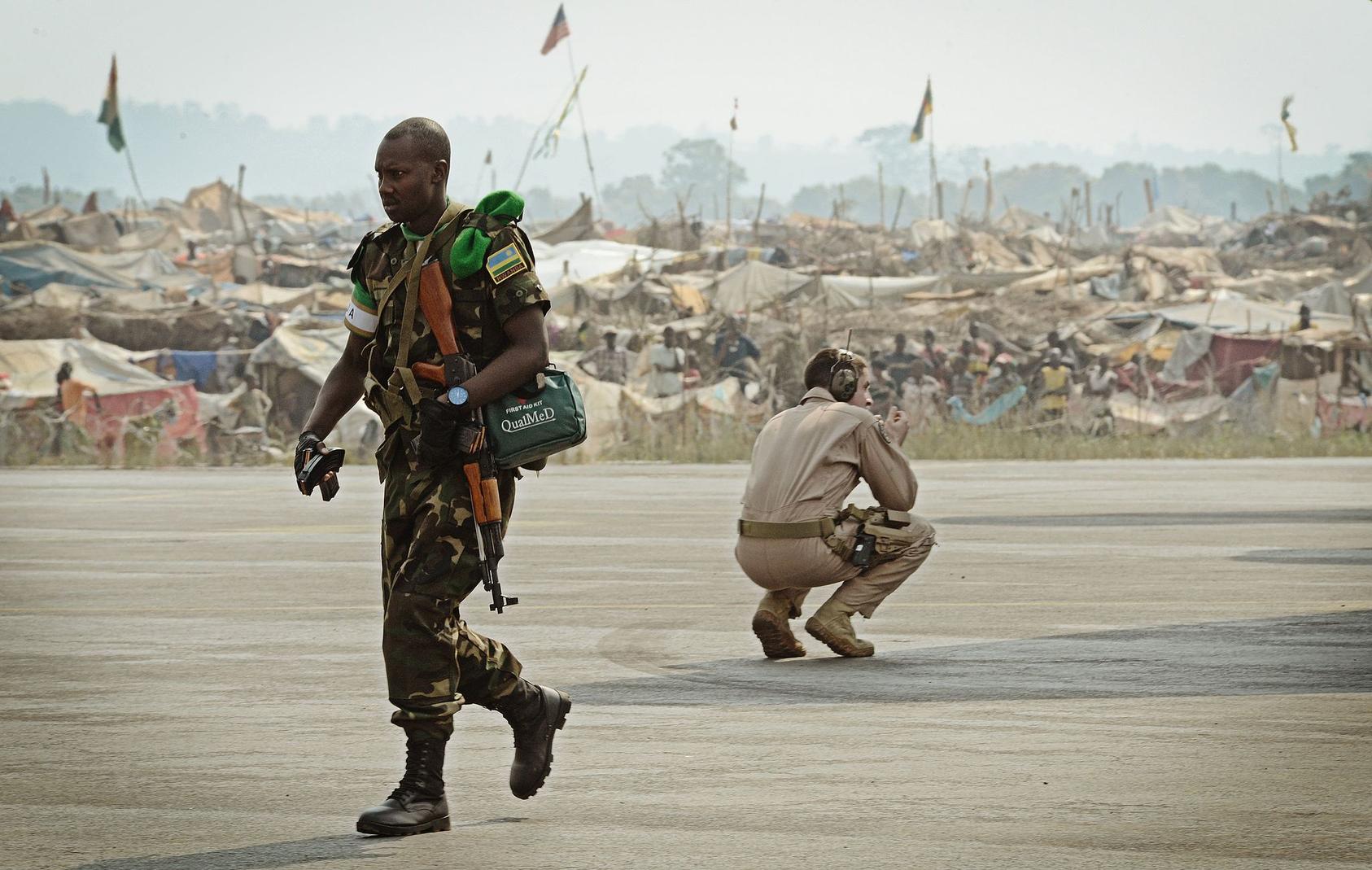Evolving Conflict Dynamics in the Central African Republic
Updates from the Field
Despite holding its first peaceful, democratic elections earlier this year, the Central African Republic remains vulnerable to a resurgence of the conflict that began in 2012. An estimated 2.3 million people require humanitarian assistance to meet basic needs, and a stalled disarmament process allows armed groups to continue operating with impunity in many parts of the country. On October 14, the U.S. Institute of Peace held a discussion with experts from the field on the crucial next steps needed to achieve disarmament, end the violence and begin reconstruction and reconciliation.

Following the inauguration of President Faustin Archange Touadéra in March of 2016, his government set disarmament of armed groups as its main priority. He has sought to actively engage the armed groups on the design of a process for disarming, demobilizing and reintegrating these forces, but most of these factions remain unsatisfied with the proposed path and refuse to disarm. Instead, they continue to control large swaths of the country, including important transport routes. The violence and insecurity prevent the return of the nearly 1 million people displaced by the conflict, making it impossible to move forward with national reconciliation and with reconstruction of the country’s frayed infrastructure.
In the East, the lack of government authority and security services has allowed armed groups to operate unencumbered, including the Lord’s Resistance Army (LRA). In the first half of 2016 alone, the LRA kidnapped 344 people, more than the same period of any year since 2010. At the same time, Uganda has begun to withdraw its stabilization force of nearly 2,500 troops that was mobilized with U.S. assistance in part to help capture LRA leader Joseph Kony. As a result, the area’s population remains vulnerable to attacks. To bring sustainable security to CAR’s citizens, national policymakers and the international community will need to lay the groundwork for good governance in the country. This panel drew on its direct experience working with communities affected by the violence to speak to the situation in CAR and make recommendations for moving forward.
Panelists
Fiona Mangan
Country Representative in the Central African Republic, U.S. Institute of Peace
Igor Acko
Program Specialist in the Central African Republic, U.S. Institute of Peace
Paul Ronan
Co-Founder and Project Director, Resolve LRA Crisis Initiative



